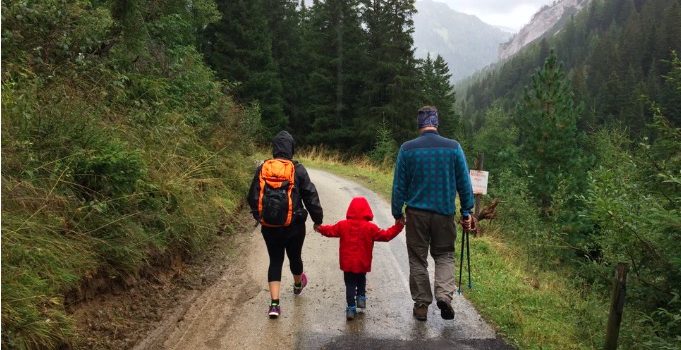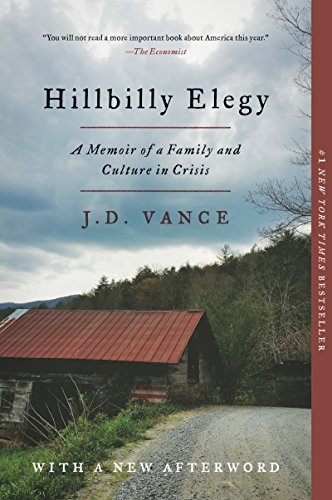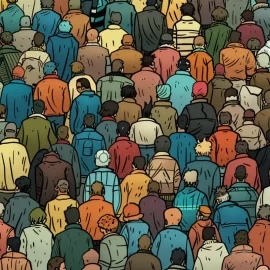

This article is an excerpt from the Shortform summary of "Hillbilly Elegy" by JD Vance. Shortform has the world's best summaries of books you should be reading.
Like this article? Sign up for a free trial here .
Hillbilly Elegy: A Memoir of a Family and Culture in Crisis examines the spiritual and social decline of the Appalachian white working class through the story of the hillbilly family of its author, JD Vance. Growing up in a post-industrial Ohio town, Vance encountered the symptoms of community and familial dysfunction—drug and alcohol abuse, unstable marriages, lack of education, and evasion of hard work—that underscore the failing values of the culture from which he came.
We’ll cover the ways in which Vance’s hillbilly family has shaped who he is today and how the stereotypes of the hillbilly family are, in Vance’s case, accurate.
The Hillbilly Family’s Hillbilly Justice
JD got an early education in the concept of “hillbilly justice.” During visits with his grandparents back to Jackson, Kentucky (where they still maintained close ties of kin and community), JD would be regaled with stories of the legendary and lawless exploits of his extended hillbilly family and the world they came from.
- One uncle had assaulted a truck driver with an electric saw because the driver had called him a “son of a bitch.” The man nearly bled to death.
- A man in Jackson who had been accused of sexually assaulting a young girl was once found face-down in a lake, shot to death with sixteen bullets in his back.
- Even Mamaw herself had, at the age of 12, shot an attempted cattle rustler in the leg.
These tales of violent vigilante justice were presented to JD as positive examples of his community’s values. Mamaw and the hillbilly family were proud of these stories and believed they reflected the very best of their culture. As an adult, JD now sees how truly impressionable he was: his young mind internalized these values and he came to see violence as a legitimate and even honorable means of resolving disputes. This message would be reinforced by the people around him throughout his childhood and adolescence.
Learning to Brawl
This social context encouraged—in fact, demanded—that a young man like JD enforce and uphold hillbilly justice himself. Loyalty to family, upholding one’s honor, and demonstrating toughness were the core values of this “justice” system.
Accordingly, casual insults to one’s hillbilly family (especially its female members) demanded a violent response: when a schoolyard bully directed some slander at JD’s grandmother, JD earned a bloody nose defending his family’s honor on the schoolyard.
The social expectation was that young men should resort to violence to avenge any insult towards the family, whether the insult was intended or not. When his older sister Lindsay was dumped by her boyfriend, custom demanded that JD brawl with her ex to maintain the family’s dignity. Even though he proceeded to lose the fight (badly), he was rewarded for his display of violence by Mamaw, who told him that he had done the correct and honorable thing.
Later, Mamaw would teach JD fighting tactics designed to inflict maximum damage on his opponents. While she encouraged him to only fight to defend himself, she generally approved of the use of violence to solve disputes, telling JD, “Sometimes, honey, you have to fight, even when you’re not defending yourself. Sometimes it’s just the right thing to do.”
A Community In Decline
This tumultuous period in young JD’s life occurred against the backdrop of the broader social, moral, and spiritual decay of the hillbilly culture that had defined his hillbilly family’s experience.
When JD was born in 1984, Middletown was still a respectable, prosperous industrial town. It had a vibrant shopping center downtown, long-established businesses that had been going strong since World War II, and most importantly, a major employer in the Armco steel mill.
Over the course of JD’s upbringing, the town changed dramatically for the worse. The once-bustling downtown became blighted by abandoned shops and pockmarked by broken windows; respectable family businesses were replaced by cash-for-gold stores and pawn shops; and Main Street degenerated into a haunt for drug addicts and dealers.
Growing Up in a Hillbilly Family
These larger social, cultural, and economic trends were dramatically illustrated by the increasingly chaotic and disturbing events of JD’s personal life. When JD was eleven, his mother had to be hospitalized following a suicide attempt.
This was one of his first exposures to just how deeply damaged his mother was—and how much her struggles would come to define his formative years. Ultimately, through the love and guidance of his grandparents (especially Mamaw), JD would eventually come out on the other side of these traumatic experiences a better and stronger person. But his history with his mother still haunts him and he realizes that not everyone in those circumstances is as lucky to have two tough-as-nails hillbillies as his grandparents in their corner.
Mom’s Situation Accelerates
Although her marriage with Bob was loveless and marked by verbal and physical abuse, its deterioration clearly took a powerful emotional toll on her already-fragile and unstable psyche. This was common in hillbilly families in the area.
Bev began to turn to drugs and alcohol, and started having numerous affairs with strange men who would suddenly appear and then disappear from JD’s life. As a result, JD and his sister grew having no idea of how a man ought to treat his family and without any true father figure at all.
Things came to a head when she tried to kill herself by crashing her car into a telephone pole. When she was released from the hospital, things only deteriorated further. The kids got a full view of the extent of their mother’s dysfunction, as she would stay out all night with new friends that JD and Lindsay had never met before. She would also subject them to extreme emotional outbursts and episodes of physical violence.
Things lingered in this state for a few months, until an event took place between JD and his mother that forever altered their relationship and showed JD just how toxic his mother had become.
Class Differences
As an adult, JD notes his mother’s trial as his first exposure to America’s class differences.
Even as a child, he observed that the social workers, judges, and lawyers all spoke in what he dubbed a “TV accent.” This was the neutral, flat, non-regional accent in which national news anchors speak. It was a jarring contrast from the Appalachian twang that so many of JD’s hillbilly family and friends spoke with.
Looking back, he sees this as an inflection point: the beginning of his understanding that there was a big difference between the people who wrote and enforced the laws, and those who were subjected to them—and he, his hillbilly family, and his community were firmly in the latter camp.
Another shock to the system happened when JD visited his Uncle Jimmy in California. This wasn’t his first time travelling away from home. JD had visited relatives in Kentucky, Pennsylvania, South Carolina, and Texas, but all of those trips bore something in common: they were all journeys to places that were firmly entrenched in hillbilly culture. The family he saw there lived the same way people did in Middletown: eating the same foods, practicing the same religion, and sharing the same outlook on life—with all the good and bad that that outlook entailed.
But California was different, filled with people who came from different backgrounds and didn’t carry the same baggage of hillbilly culture. JD visited wineries, met LGBT people in San Francisco’s Castro district, and had other experiences that he couldn’t have had in a place like Middletown. It showed him that there was a wider world outside of the culture of the hillbilly family from which he’d come.
———End of Preview———

Like what you just read? Read the rest of the world's best summary of "Hillbilly Elegy" at Shortform . Learn the book's critical concepts in 20 minutes or less .
Here's what you'll find in our full Hillbilly Elegy summary :
- The hallmarks of hillbilly culture and why they hold people back
- How JD Vance broke out of his hillbilly childhood and graduated from Yale
- Why the author thinks hillbillies might be beyond saving


![Charlie Munger’s 8 Secrets to Living a Good Life 8 Secrets to Living a Good Life [Charlie Munger]](https://www.shortform.com/blog/wp-content/uploads/2021/06/good-life-morning-coffee-270x270.jpg)



